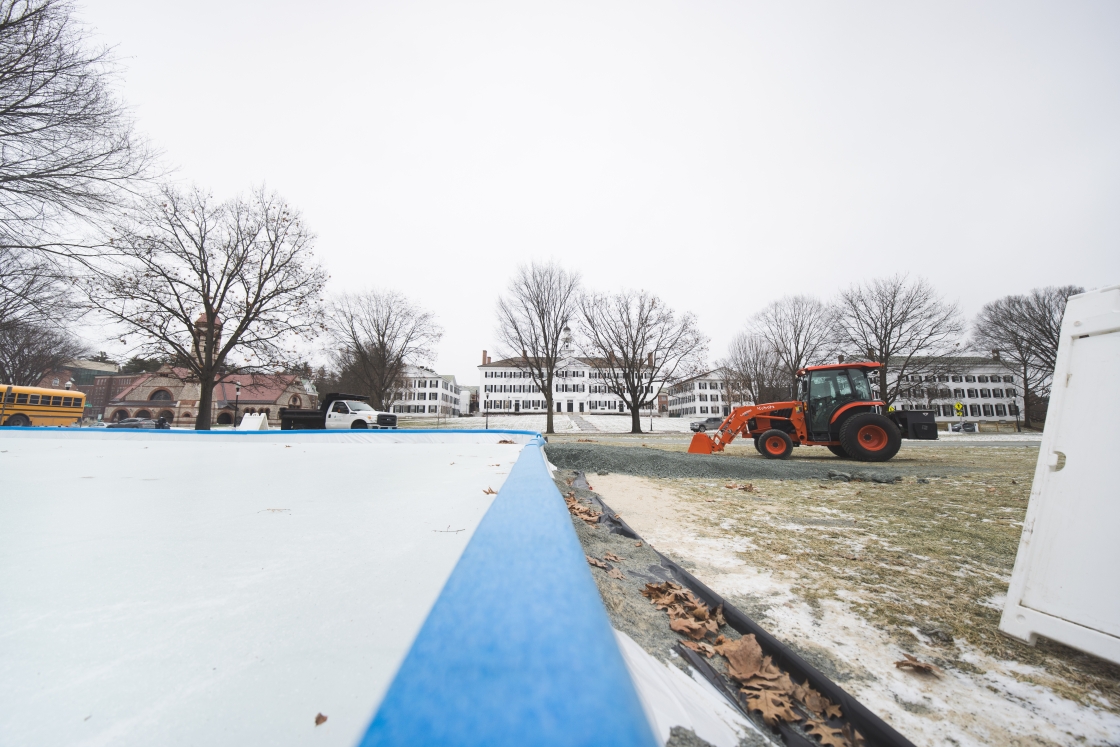
Zeynep Turkyilmaz, an historian of the Middle East, joined the Dartmouth faculty last fall as an assistant professor of history. (photo by Eli Burak ’00)
Zeynep Turkyilmaz, assistant professor of history, studies the Middle East, especially the Ottoman empire. She holds a PhD from the University of California at Los Angeles, and comes to Dartmouth following a Mellon Foundation postdoctoral fellowship at the University of North Carolina–Chapel Hill.
In this interview, she discusses the particular challenges of the diverse Middle Eastern communities she studies—and a unique aspect of Dartmouth’s own community.
Fault lines: “As an undergraduate in Istanbul, Turkey, I was interested in and involved with the social and political problems of the people. I found myself inquiring into the foundation of the Turkish Republic, which is founded as a radical secular and uniquely ‘civilized’ nation state in the Middle East modeled after Europe which, quite unfortunately, was itself at the height of fascism. I began to realize the several fault lines along this nationalist and secularist narrative which either fought with or borrowed from the multi-ethnic and multi-religious imperial past.”
Moments at the crossroads: “I try to understand silenced moments of history at the crossroads of socioeconomic inequality, identity, coexistence, and marginalization and investigate how these silences impact our modern state structures, nationalist myths, and notions of citizenship. For my dissertation, I worked on the religiously marginalized communities that could not be neatly placed within monotheistic religious traditions tolerated in the Ottoman empire, including ‘crypto-Christians’ who were members of a mining guild and went to mosque on Fridays and church on Sundays.”
On the horizon: “The major change and challenges in my field will come through more empathy, self-reflexivity, and moving away from both positive and negative preconceived notions about the history, people, and their beliefs in the region.”
The Dartmouth welcome: “Witnessing how the upper classes welcomed the Class of 2015 and made them part of the community was an exceptional experience for me. If I have to mention one moment, that would definitely be the bus scene. [Each fall, upperclass students give the incoming students arriving for Dartmouth Outing Club First-Year Trips an enthusiastic and colorful welcome to campus.]
It was very touching to see the upper classes in costumes cheering and dancing as the new students were getting out of the bus to the ‘unknown.’ Before they can realize that they are in a new place, possibly quite different than anything they are familiar and comfortable with, the Dartmouth community embraces these students, and makes them members.”
Beyond the archives and the classroom: Turkyilmaz is soccer fan, although she admits to having a hard time with American football. “And I love snow—too bad we did not get much this year.”
Part 1: Class of 2011-12: Meet Dartmouth’s New Faculty
Part 2: Meet Dartmouth’s New Faculty: Alan Covey ’96
Part 4: Meet Dartmouth’s New Faculty: Gevorg Grigoryan
